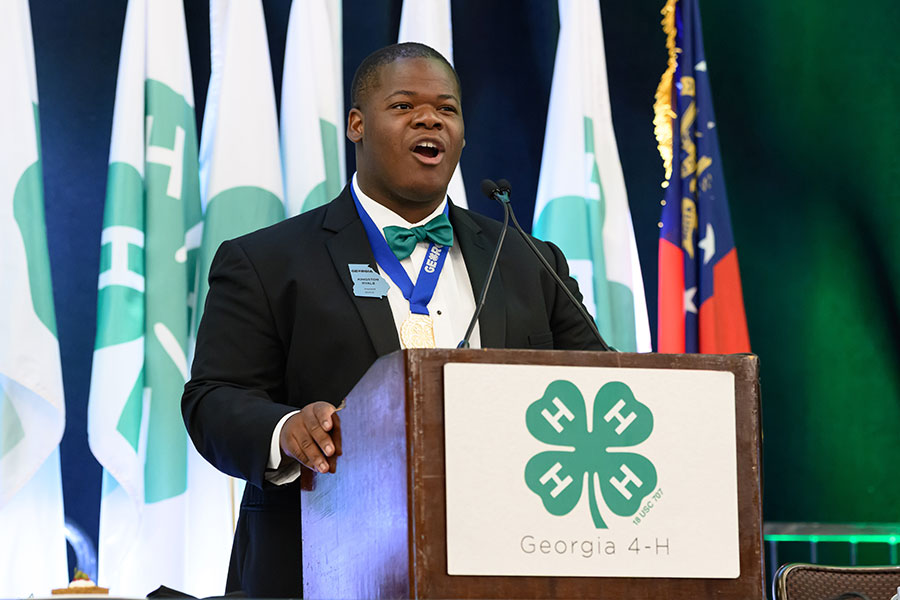By Stephanie Schupska
University of
Georgia
Actual schoolwork can get lost in the rush. A key to children’s success is paying attention to what goes on during the eight hours they spend at school.
“I came across a recent survey in one state that said fewer than 20 percent of parents are in regular contact with their child’s school and teacher,” said Don Bower, a University of Georgia Cooperative Extension human development specialist. “Nobody is happy with that.”
As teachers and schools search for ways to engage their students, sometimes the one missing element is parental involvement. Eighth-grade teacher Julie Crow said the best way a parent can connect with a child’s teachers is to show up at parent-teacher conferences.
“We make a lot of appointments, and I bet about 60 percent of them don’t show up,” she said.
Crow teaches mathematics at East Jackson Middle School in Commerce, Ga. Parents there can also meet with teachers when they pick up their child’s report card.
“It seems like a lot of parents come when their child is in sixth grade,” she said. “But by the time they get to eighth grade, not as many parents come.”
When students reach middle school, Bower said, many parents tend to believe their student is more independent and responsible. In fact, parents may need to be in closer contact with their child’s teacher during these challenging years, he said.
“In middle school and high school, students have issues of bigger crowds and less one-to-one contact,” he said. “Typically at the middle school level, many parents are overwhelmed with trying to meet all the teachers and keep up with what’s going on in all those classes.”
Bower said a solution to the teacher overload would be for a parent to find someone at the school who knows the child and to talk to that person regularly.
“The most effective systems are where both the school and the parent understand the learning goals of the student and work together to achieve those goals,” he said. “That’s done in an environment where responsibility and power are shared between the school and the parents.”
Sometimes, parents doubt the necessity of parent-teacher conferences, he said.
“For some, it informs them of a situation to begin with,” Crow said. “So many parents don’t know what’s happening in their kids’ lives. For some parents, the conference doesn’t do anything. For others, it goes home and lights a fire.”
Bower and Crow offer these tips on what parents can do to communicate with their child’s teachers.
1. Use the Web. “More than 95 percent of schools now have their own Web sites,” Bower said. “Using the Web also makes it much easier, especially for parents gone during traditional hours.” Web use could include something as common as e-mail. However, many schools now post a student’s password- protected grades and homework online.
2. Call. “The old standby is telephone contact between the parent and teacher,” Bower said. “Make sure to call during the teacher’s free period if the teacher has one. Parents need to understand when it’s a good time to reach the teacher.” Teachers generally only have about an hour and a half per day to call a parent back as well as complete other projects, Crow said.
3. Ask the child about homework assignments, tests and notes from the teacher. Talk to your student. “I think parents need to do more than just meet with their student’s teachers at conferences,” Crow said, “even if it’s not necessarily to talk to me more, but talking to their kids more.”






